11:00–12:30 (Kona Moku Salon B)
An Intelligent 5G Network for a Variety of Services
| Moderator: | Jin Yang, Verizon Communications |
| Panelists: | Murali Ranganathan, Nokia Siemens Networks |
| Pingping Zong, Intel | |
| Bo Hagerman, Ericsson Research | |
| Kazuaki Takeda, NTT DOCOMO |
Summary—5G wireless network is evolving from a connectivity-based network to an intelligent service delivery platform. The 5G service based network architecture, radio and core network virtualization allow more flexible network function placement and broad ecosystem. The 5G supports end-to-end network slicing and differentiated Quality of Services (QoS) from radio, transport to core and application server. An intelligent multiple-access edge network is needed to support massive Internet of Things, ultra-reliable and low-latency communications (URLLC) on top of enhanced mobile broadband (eMBB). Dynamic new radio access with sophistic beam management and further densified radio nodes increase the complexity of network operation beyond human–being can handle. Thus, artificial intelligence and machine learning are essential for autonomous network operations to enable a fully connected world with communications of everything. |
|
Biographies | |
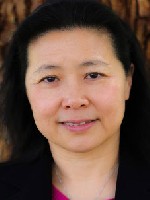 Jin Yang is a Fellow at Verizon Communications Inc., responsible for wireless technology and strategy. She is leading next generation wireless network architecture and technologies, including 5G NR, Evolved LTE, Internet of Things (IoT), Multi-access Edge Computing, network virtualization, and Self-Organizing Network. She has played a key role in the development and commercialization of 5G NR in 2019, LTE networks in 2010 and various CDMA networks since 1995 at Verizon, Vodafone and AirTouch Communications. |
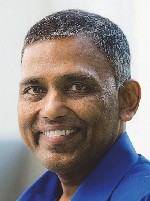 Murali Ranganathan is responsible for worldwide SON business product management at Nokia Software. As Head of SON Business Product management, his responsibilities include roadmap management, customer liaison and long term technology and strategy positioning of SON for 5G and beyond. Murali works closely with his counterparts at Nokia Bell Labs to define SON simulations and standardization needs. Murali has been working on SON related projects since 2010 and has over 20 years of experience in product management, systems engineering, simulations and network performance optimization of satellite and terrestrial wireless technologies along with 10 issued/published patents. |
 Pingping Zong is a Senior Principal Engineer in Next Generation and Standards (NGS) group Wireless Technology team in Intel Corporation. She leads 5G technology prototyping and ecosystem engagement, focusing on TSN over 5G, URLLC enhancement and private/local networking. Prior to her current role, Pingping has led the technology development team in NGS 3GPP standards team, contributed to the early development of 5G network architecture and protocol design, as well as 3GPP standardization strategy and operations work. Dr. Zong received her BS degree from Beijing University of Post and Telecommunications, and her MS and Ph.D. degrees from New Jersey Institute of Technology, all in Electrical Engineering. |
 Dr. Bo Hagerman is a Principal Researcher with Ericsson Research, and he currently holds a position as 5G Network Strategy Evolution Leader North America. Dr. Hagerman has more than 30 years of experience in radio network system research and development. He received the M.Sc. EE, Lic. Tech. EE and Ph.D. degrees, in Radio Communication Systems, from Royal Institute of Technology (KTH), Stockholm, Sweden in 1987, 1993 and 1995, respectively. Since Dr. Hagerman joined Ericsson Research in 1987, he has held various leading technical positions in research and development working on pre-2G cellular systems and onward. Dr. Hagerman has focused his professional carrier on aspects of radio network deployment, multi-antenna and spatial processing including the challenges of hardware architectures, algorithms, protocols, deployment and benefits in the radio network. Dr. Hagerman is named inventor on more than 340 granted patents globally, and he is a Senior Member of IEEE. |
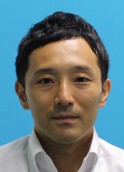 Kazuaki Takeda received his B.E., M.S. and Dr. Eng. degrees in communications engineering from Tohoku University, Sendai, Japan, in 2003, 2004 and 2007 respectively. Since 2005, he has been a Japan Society for the Promotion of Science (JSPS) research fellow. In 2008, he joined NTT DOCOMO INC. He has been the rapporteur for New Radio (NR) in 3GPP TSG-RAN since March 2016. His research interests include new radio access technologies for LTE, LTE-Advanced, and NR. |
14:00–15:30 (Kona Moku Salon B)
Artificial Intelligence Paradigms for Designing Wireless Systems
| Moderator: | Haris Gačanin, Nokia |
| Panelists: | Peying Zhu, Huawei |
| Nageen Himayat, Intel | |
| Klaus Doppler, Nokia | |
| Shugong Xu, Shanghai University |
Summary—Bringing different dimensions in addition to the traditional wireless network (technology)-centric thinking on network design and operation, we will focus on outlining the associated research challenges related to positioning and importance of advancements in network management and operations in 5G. These industry experts will discuss future research directions related to application of artificial intelligence and machine learning in 5G network design with respect to connectivity, autonomous operation, services and optimization. These issues provoke new coming challenges and unveil necessary future directions across multi-disciplinary research areas highlighting operator/technology and service requirements with necessary architecture and supporting infrastructure.
|
|
Biographies | |
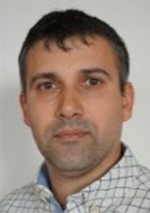 Haris Gačanin received his Dipl.-Ing. degree in Electrical engineering from the University of Sarajevo in 2000. In 2005 and 2008, respectively, he received MSc and PhD from Tohoku University in Japan. He was with Tohoku University from 2008 until 2010 first as Japan Society for Promotion of Science postdoctoral fellow and later, as Assistant Professor. In 2010, he joined Alcatel-Lucent (now Nokia), where he is currently Department Head at Nokia Bell Labs. He is adjunct professor at University of Leuven (KU Leuven). His professional interests are related to applications of artificial intelligence with machine learning in autonomous wireless networks. He has 200+ scientific publications (journals, conferences and patent applications) and invited/tutorial talks. He is senior member of the Institute of Electrical and Electronics Engineers (IEEE) and the Institute of Electronics, Information and Communication Engineering (IEICE). He is a recipient of IEICE Communication System Study Group Best Paper Award (joint 2014, 2015, 2017), The 2013 Alcatel-Lucent Award of Excellence, the 2012 KDDI Foundation Research Award, the 2009 KDDI Foundation Research Grant Award, the 2008 Japan Society for Promotion of Science (JSPS) Postdoctoral Fellowships for Foreign Researchers, the 2005 Active Research Award in Radio Communications, 2005 Vehicular Technology Conference (VTC 2005-Fall) Student Paper Award from IEEE VTS Japan Chapter and the 2004 Institute of IEICE Society Young Researcher Award. He was awarded by Japanese Government (MEXT) Research Scholarship in 2002. |
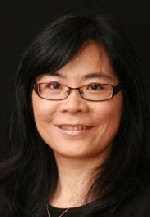 Dr. Peiying Zhu is an IEEE Fellow and Huawei Fellow. She is currently leading 5G wireless system research in Huawei. The focus of her research is advanced wireless access technologies with more than 200 granted patents. She has been regularly giving talks and panel discussions on 5G vision and enabling technologies. She served as the guest editor for IEEE Signal processing magazine special issue on the 5G revolution and IEEE JSAC on Deployment Issues and Performance Challenges for 5G. She co-chaired various 5G workshops in IEEE GLOBECOM. She is actively involved in 3GPP and IEEE 802 standards development. She is currently a WiFi Alliance Board member. Prior to joining Huawei in 2009, Peiying was a Nortel Fellow and Director of Advanced Wireless Access Technology in the Nortel Wireless Technology Lab. She led the team and pioneered research and prototyping on MIMO-OFDM and Multi-hop relay. Many of these technologies developed by the team have been adopted into LTE standards and 4G products. Peiying Zhu received the Master of Science degree and Doctor Degree from Southeast University and Concordia University in 1985 and 1993 respectively. |
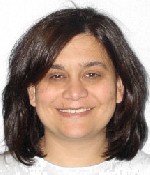 Nageen Himayat is a Principal Engineer with Intel, where she conducts research on next generation (5G/5G+) of mobile broadband systems, and applications of machine learning for wireless. She has authored over 250 technical publications (peer-reviewed publications, 3GPP/IEEE standards contributions and patent filings), with contributions on multi-radio heterogeneous networks, mm-wave communication, cross layer design, and non-linear signal processing techniques. Prior to Intel, Nageen was with Lucent Technologies and General Instrument, where she developed systems for both wireline and wireless networks. Nageen received her BSEE degree from Rice University, MBA from University of California, Berkeley, and Ph.D. from the University of Pennsylvania. |
 Klaus Doppler is heading the Indoor Networks Research group in Nokia Bell Labs. His research focus is on enabling ubiquitous Gigabit connectivity and on developing technologies for smart buildings, enterprises and factories. In the past, he has been responsible for the wireless research and standardization in Nokia Technologies, incubated a new business line and pioneered research on Device-to-Device Communications underlaying LTE networks. Klaus received several inventor awards in Nokia for 100+ pending and granted patent applications. He has published 40+ scientific publications, received his PhD. from Aalto University, Finland in 2010 and his MSc. from Graz University of Technology, Austria in 2003. |
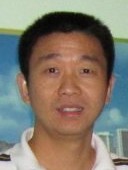 Shugong Xu is an IEEE Fellow, a specially-appointed professor at Shanghai University, head of the Shanghai Institute for Advanced Communication and Data Science (SICS). In his 20+ years career in research (over 15 years in industrial research labs), he had over 40 issued US/WO/CN patents and published more than 100 peer-reviewed research papers. He was awarded "National Innovation Leadership Talent" from China government in 2013, IEEE Fellow in 2015. Shugong also won 2017 Award for Advances in Communication from IEEE Communication Society. His current research interests include V2X, wireless communication systems, and machine learning etc. |
16:00–17:30 (Kona Moku Salon B)
AI for Self Driving Networks
| Moderator: | David Soldani, Huawei Australia |
| Panelists: | Kamesh Namuduri, University of North Texas |
| Haris Gačanin, Nokia (pending) | |
| Takehiro Nakamura, NTT DOCOMO | |
| Kazuaki Takeda, NTT DOCOMO |
Summary—In the 5G era, network operation and management, resources and micro-services orchestration, performance and security improvement, and service diversity have reached an unprecedented level of complexity. Numerous communication service providers need to handle co-existing radio access technologies (2/3/4/5G), exploit spectrum bands from 400 MHz up to 52.6 GHz, configure more than 50 types of sites, and activate thousands of features with thousands of parameters to set. The performance of massive MIMO and heterogeneous networks affect <20 categories of devices and a large range of services—voice over LTE and New Radio (NR), AR/VR, air fiber, smart manufacturing, connected cars, smart buildings, smart energy, etc. This complexity is calling for Self Driving Networks, shifting from solutions where decisions and service experience are still subject to human intervention to highly and even fully autonomous networks via adaptive and self-learning policies and self-evolution. Topics include:
|
|
Biographies | |
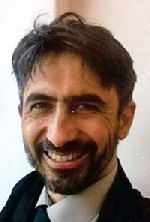 David Soldani received a M.Sc. degree, Laura Vecchio Ordinamento, in Electronic Engineering with magna cum laude from Università degli Studi di Firenze, Italy, in 1994; and a D.Sc. degree in Technology with distinction from Helsinki University of Technology (Aalto University), Finland, in 2006. In 2014, 2016 and 2018 he was appointed Visiting Professor, Industry Professor, and Adjunct Professor at University of Surrey, UK, University of Technology Sydney, Australia, and University of New South Wales, respectively. |
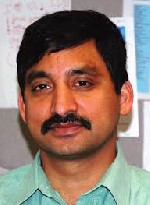 Kamesh Namuduri is a Professor of Electrical Engineering and the director of Autonomous Systems Laboratory at the University of North Texas (UNT). He received his B.S. degree in Electronics and Communication Engineering from Osmania University, India, in 1984, M.S. degree in Computer Science from University of Hyderabad in 1986, and Ph.D. degree in Computer Science and Engineering from University of South Florida in 1992. Over the past eleven years, his research is focused on aerial networking and communications. He co-organized a series of workshops on “Airborne Networking and Communications” in conjunction with IEEE, AIAA, AUVSI, and ACM Conferences. He is serving as the chair for two Standards Working Groups (IEEE 1920.1: Aerial Communications and Networking and IEEE 1920.2: Vehicle-to-Vehicle Communications for Unmanned Aircraft Systems). He is serving as the Chair for the IEEE Vehicular Technology Society’s Ad Hoc Committee on Drones. He is a co-editor for the book titled “UAV Networks and Communications” published by the Cambridge University Press in 2017. He is leading the Smart and Connected Community project on “Deployable Communication Systems” in collaboration with the government, public, and private organizations. This living laboratory project was demonstrated thrice during the Global City Teams Challenge hosted jointly by the National Institute of Standards and Technology and US Ignite in 2015, 2016, 2017, and 2018. He contributed to the development of research agenda, requirements and blueprints highly deployable communications systems led by the National Institute of Standards and Technology and National Public Safety Telecommunications Council. |
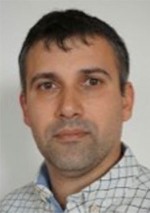 Haris Gačanin received his Dipl.-Ing. degree in Electrical engineering from the University of Sarajevo in 2000. In 2005 and 2008, respectively, he received MSc and PhD from Tohoku University in Japan. He was with Tohoku University from 2008 until 2010 first as Japan Society for Promotion of Science postdoctoral fellow and later, as Assistant Professor. In 2010, he joined Alcatel-Lucent (now Nokia), where he is currently Department Head at Nokia Bell Labs. He is adjunct professor at University of Leuven (KU Leuven). His professional interests are related to applications of artificial intelligence with machine learning in autonomous wireless networks. He has 200+ scientific publications (journals, conferences and patent applications) and invited/tutorial talks. He is senior member of the Institute of Electrical and Electronics Engineers (IEEE) and the Institute of Electronics, Information and Communication Engineering (IEICE). He is a recipient of IEICE Communication System Study Group Best Paper Award (joint 2014, 2015, 2017), The 2013 Alcatel-Lucent Award of Excellence, the 2012 KDDI Foundation Research Award, the 2009 KDDI Foundation Research Grant Award, the 2008 Japan Society for Promotion of Science (JSPS) Postdoctoral Fellowships for Foreign Researchers, the 2005 Active Research Award in Radio Communications, 2005 Vehicular Technology Conference (VTC 2005-Fall) Student Paper Award from IEEE VTS Japan Chapter and the 2004 Institute of IEICE Society Young Researcher Award. He was awarded by Japanese Government (MEXT) Research Scholarship in 2002. |
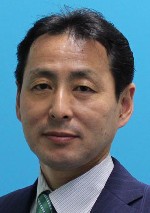 Takehiro Nakamura joined NTT Laboratories in 1990. He is now SVP and General Manager of the 5G Laboratories in NTT DOCOMO, Inc. Mr. Nakamura has been engaged in the standardization activities for the W-CDMA, HSPA, LTE/LTE-Advanced and 5G at ARIB in Japan since 1997. He has been the Acting Chairman of Strategy & Planning Committee of 5G Mobile Communications Promotion Forum(5GMF) in Japan since October 2014. Mr. Nakamura has also been contributing to standardization activities in 3GPP since1999, including as a contributor to 3GPP TSG-RAN as chairman from April 2009 to March 2013. He is also very active in standardization of C-V2X/Connected Car in ARIB and ITS Info-communications Forum in Japan. He is now a leader of Cellular System Application Task Group of ITS Info-communications Forum. |
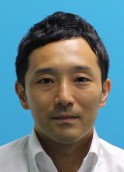 Kazuaki Takeda received his B.E., M.S. and Dr. Eng. degrees in communications engineering from Tohoku University, Sendai, Japan, in 2003, 2004 and 2007 respectively. Since 2005, he has been a Japan Society for the Promotion of Science (JSPS) research fellow. In 2008, he joined NTT DOCOMO INC. He has been the rapporteur for New Radio (NR) in 3GPP TSG-RAN since March 2016. His research interests include new radio access technologies for LTE, LTE-Advanced, and NR. |

